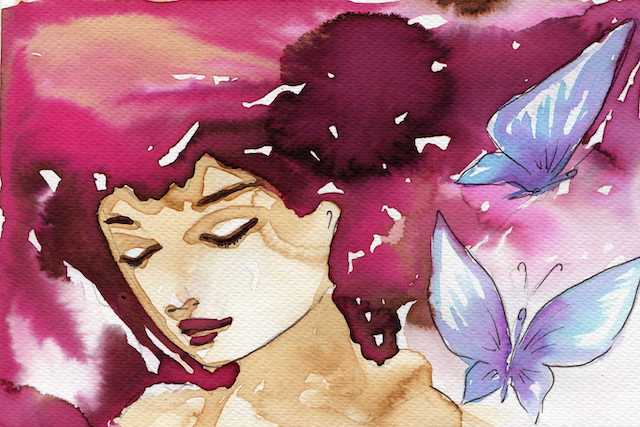I used to loathe the word “forgiveness.”
What it meant to me was that someone could hurt me, lie to me, or even abuse me, say “sorry,” and I was supposed to pretend like nothing happened. If I didn’t, they would say to me, “I thought you were a forgiving person,” or “What? I already said I was sorry.”
It felt awful, outside and inside.
I had one relationship that I knew very well wasn’t good for me and I wanted out of, but my misunderstanding of what the word “forgiveness” meant kept me stuck there for a very long time.
The person would lie repeatedly and never come clean. When things came out (as they often do), the person would claim to be sorry or that they were “getting better” and then expect me to just go on as if nothing had happened.
My trust for them was eroded, and by staying there, that spilled over into my trust for other people and even myself. My self-worth also became depleted. I felt powerless because I believed that, in order to be a good, forgiving person, I had to accept as many meaningless “sorries” as this person was going to dribble out. I lost motivation and became depressed and drained.
It felt like forgiving was designed to punish the person who was hurt.
I had heard the phrases “forgiveness sets you free,” and “forgiveness is for you, not them,” and neither made any sense because I certainly did not feel free, and there appeared to be nothing in it for me to keep allowing their nonsense.
Well, it didn’t make sense because “forgiveness” wasn’t what I believed it was at all.
One day, I looked it up in the dictionary.
Forgiveness definition: “to let go of anger and resentment towards a person or event from the past.”
Forgiveness is that—just that. Ceasing to carry around resentment or anger inside of yourself for what happened in the past.
It doesn’t say you’re supposed to pretend it never happened.
It doesn’t say you’re supposed to trust the person again after they broke your trust, just because you have forgiven them.
It doesn’t even say you have to speak to them again.
Ever.
Forgiveness IS for you.
Forgiveness DOES set you free.
Forgiveness means you stop carrying around the pain of the past inside of you. So that you don’t bring it into every new place you go, allowing it to bubble up and explode on people who had nothing to do with causing you injury.
If you decide to forgive a person but not speak to them again because you know you can’t trust them, that’s 100% wise to do and doesn’t mean you’re unforgiving. It means your trust was broken, and they gave you no reason to think it would not be broken again, so you decided to separate. Or maybe they made promises and broke them again and again until your trust for them was entirely demolished.
Forgiveness doesn’t have to mean reconciliation.
Forgiveness means you accept that what happened has happened and can’t be changed. It means if a memory pops up or gets triggered, you’re not fired up by that anger and resentment and completely disempowered in that moment as if you were still living in the past.
It isn’t instant, nor easy, and there is a process to it that involves acceptance, reflection, wisdom, and presence before the release. It takes time. It takes work. Memories can catch you off guard, but once you are aware of what is happening, you can use the process on them and dissolve them as they come.
Knowing what forgiveness is—real actual forgiveness—and applying it to my life has been absolutely life-changing.
I no longer poison present days with past pain. I can hear a song that reminds me of a painful time in the past and not get set off at all. I didn’t forget what happened, but it no longer has power over me.
This is the gift of forgiveness. It’s not for them, about them, or dependent on them. It is for you, about you, takes place within you, and gives you your life back. It gives you and all those who you choose to have in your life now the best version of you, unencumbered by haunting memories.
You don’t forget, you don’t erase, you heal.
About Doe Zantamata
Doe Zantamata is the founder of Happiness in Your Life. She wrote everything she knows in her third book, Happiness in Your Life - Book Three: Forgiveness. This book will give you the tools and insight to help you set the past down and move on. She hopes you read it and get out of it exactly what she put in it for you. Freedom. The book is available in kindle ebook, hardcover, Audible, and paperback on Amazon: https://amzn.to/2YlQ4bU.
